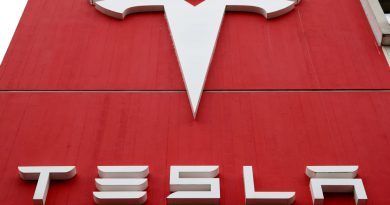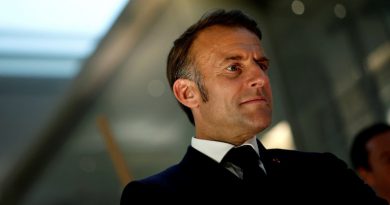Arrest of ‘last godfather’ deals new blow to ailing Sicilian mafia
Reuters
Sergi said it was not clear who would step in to replace Messina Denaro in what is now a more factionalised mafia.
The arrest of Sicilian mafia boss Matteo Messina Denaro deals a powerful blow to the mythology of the Cosa Nostra, toppling a symbol of the group’s resistance to police efforts to break up organised crime.
Messina Denaro, 60, was Italy’s most wanted mafia boss and had been on the run for three decades. He had been sentenced in absentia to a life term for his role in the 1992 murders of anti-mafia prosecutors Giovanni Falcone and Paolo Borsellino.
His arrest comes almost 30 years to the day after police caught Salvatore “Toto” Riina, Cosa Nostra’s biggest figure of the 20th century, and marks the last step in efforts to dismantle the group’s historical clan leadership.
Experts describe Cosa Nostra, its fame amplified by movies such as “The Godfather”, as an ailing crime group facing several difficulties, including competition in the highly lucrative drugs market.
Although Cosa Nostra retains control of its Sicilian territory and a capacity to infiltrate the broader economy, it has been supplanted by groups such as the Calabrian ‘Ndrangheta in the drugs trade.
“Messina Denaro was the last godfather, he represented all the secrets of Cosa Nostra. It is the end of a myth and the organisation will have to cope with this,” said Anna Sergi, an expert in organised crime at England’s Essex University.
Sergi said it was not clear who would step in to replace Messina Denaro in what is now a more factionalised mafia.
“If Cosa Nostra wants to rebuild the leadership it had in the past it needs directives, but there are no big chiefs anymore,” Sergi told Reuters, adding that she expects the group to try to rebuild connections with clans in the United States.
Shedding light on Massacres
Messina Denaro was among the masterminds of Cosa Nostra’s bombing strategy of the early 1990s which triggered national outrage and forced politicians to act, introducing waves of anti-mafia laws and making hundreds of arrests.
“That ‘declaration of war’ against the state certainly meant a weakening of the organisation that fostered other groups, such as the ‘Ndrangheta,” said Federico Cafiero De Raho, a former national anti-mafia prosecutor and a lawmaker with the opposition 5-Star Movement.
Any revelation from Messina Denaro on the group’s activities – including 1993 bomb attacks in Florence, Rome and Milan which killed 10 people – could be a further major development.
“According to all knowledge, he had a role in the bombings and further developments are possible,” said Gian Carlo Caselli, who served as chief prosecutor in Palermo at the time of Riina’s arrest.
Riina and Bernardo Provenzano, the two main leaders of the Corleonesi clan, refused to talk to investigators following their arrest but other important members of the organisation did break the code of silence.
Federico Varese, professor of Criminology at Oxford University, said the fact that Messina Denaro – a native of a town in western Sicily – had been arrested in the island’s capital of Palermo says much about how Cosa Nostra still works.
“Mafias are really not global, fluid,” he told Reuters. “On the contrary, they are very rooted in their territory and fugitives who want to maintain some sort of control and role in the organisation hang around the place where they operate.”



